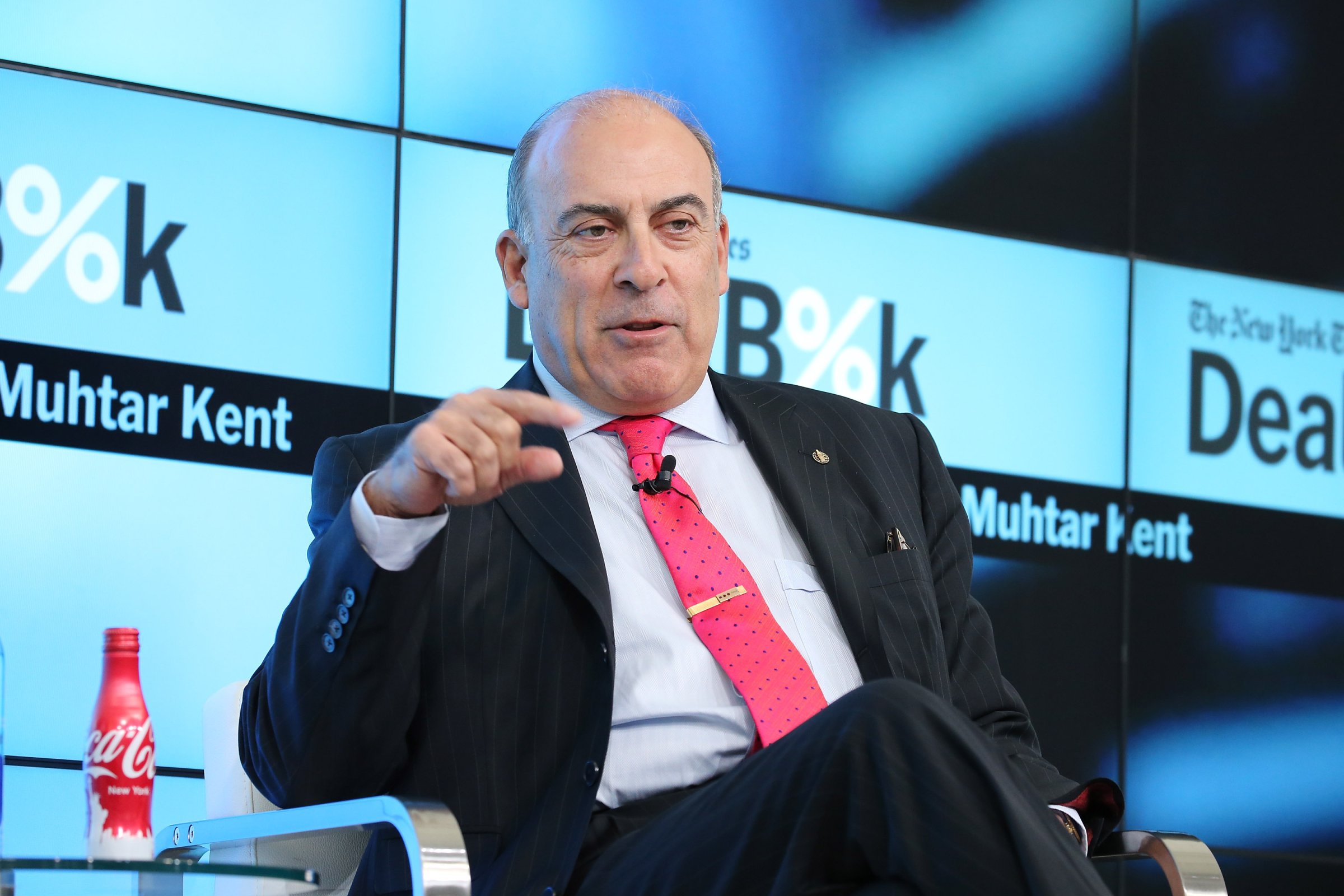
Coca-Cola CEO Muhtar Kent likes new Canadian Prime Minister Justin Trudeau. A lot.
The chief of the beverage giant brought up the newly elected prime minister during a panel on women in corporate leadership at the Women’s Forum of New York’s Breakfast of Corporate Champions on Nov. 19. Later, Kent brought Trudeau up again in an interview, lauding the PM’s insistence on a Cabinet that is 50% female. “I’m a big, big fan,” Kent said. “He’s my favorite feminist right now.”
Kent, it seems, isn’t shy with the f-word. “If you’re a male and you’re at the top, you have to be a feminist, and you have to be proud of being a feminist,” he says. “Being a declared feminist— I’d even go as far as to positively discriminate, to put it in people’s annual assessment.”
When Kent became CEO of Coca-Cola in 2009, he noticed a stark contrast: 70% of consumers were female, but there were only two women on the corporate board and female senior leadership was in the low teens. He says he recalls thinking to himself, “this is the lowest-hanging fruit, we need to solve this.”
Since then, Kent has doubled the number of women on the board of the company (from two to four, out of a total of 15) . External hiring of women to senior leadership roles has increased from 13% in 2007 to 28% in 2014. And under Kent’s leadership, the company has launched a 5by20 program, with the goal of providing economic empowerment to women to 5 million women by 2020. Some 865,000 women have participated in the entrepreneurial program across 52 countries.
Read More: Here’s What Happens When You Put More Women in Government
That’s all part of the CEO’s “golden triangle” plan: getting more women on the board, aiming for gender parity in senior leadership, and doing something meaningful for women outside the company. “In the second decade of the 21st century, unless you’re able to balance the social and economic values properly, you are not going to succeed economically,” he says. “Women have a better feeling, a better immersion, a better ideation on how to create positive balance between social and economic values.”
Cautioning against “lip service” corporate feminism, Kent insists that “there’s a lot of talk, but you have to also act—you have to act with real precision and a real commitment.”
He says his company currently offers seven to eight weeks of paid maternity leave, but that it is re-evaluating leave policies. During the panel, he said he favors term limits for board members to encourage more turnover and to help create opportunities for women (although Coca-Cola does not currently plan to implement board term limits.) Companies need to be more flexible in allowing talented women to take advantage of technology to make their jobs work, he says, recalling an example of a high-ranking operator whom he allowed to telecommute from Paris to London so she wouldn’t have to uproot her daughter.
Flexibility through technology, he says, is his chief advice to young women leaders, especially mothers: “If there’s a dinner, you don’t have to go for the entire dinner,” he says. “You stop by for 10 or 15 minuets before you go home, you see and be seen, establish the contacts, and then call them on your phone. Establish a network through technology.”
And the five million women he’s aiming to train with entrepreneurial skills? “Having loyal women retailers being created as a result of our program is good for our business,” he says.
Update: This post was updated to include Coca-Cola’s current policies on board member term limits
More Must-Reads From TIME
- The 100 Most Influential People of 2024
- The Revolution of Yulia Navalnaya
- 6 Compliments That Land Every Time
- What's the Deal With the Bitcoin Halving?
- If You're Dating Right Now , You're Brave: Column
- The AI That Could Heal a Divided Internet
- Fallout Is a Brilliant Model for the Future of Video Game Adaptations
- Want Weekly Recs on What to Watch, Read, and More? Sign Up for Worth Your Time
Write to Charlotte Alter at charlotte.alter@time.com